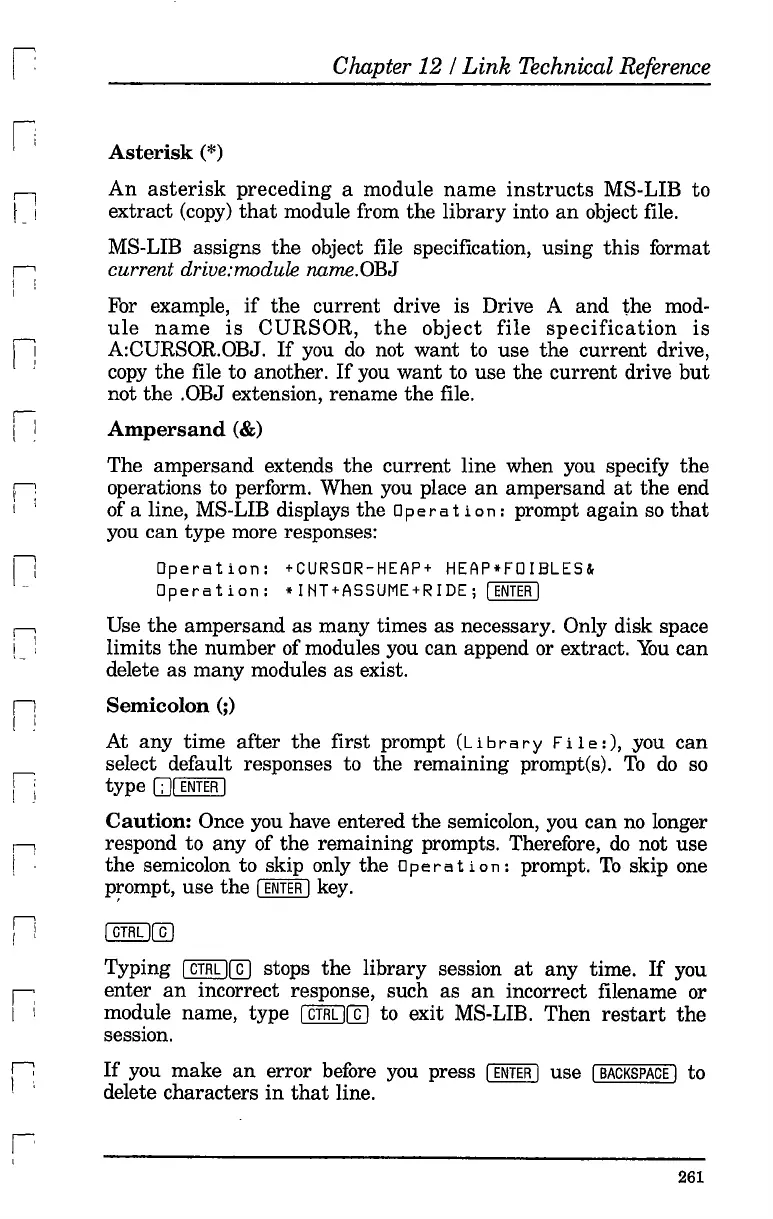r
I ,
I '
n
.--
I I
l I
r-1
I '
i l
...,
i 1
n
I i
Ii
! '
j;
I !
Ii
! '
~
I
Chapter
12/
Link
Technical Reference
Asterisk
(*)
An
asterisk
preceding
a module
name
instructs
MS-LIB
to
extract
(copy)
that
module from the library into
an
object file.
MS-LIB assigns
the
object file specification, using
this
format
current drive:module name.OBJ
For example,
if
the current drive is Drive A
and
the mod-
ule
name
is
CURSOR,
the
object
file
specification
is
A:
CURSOROBJ.
If
you
do
not want to use the current drive,
copy
the
file to another.
If
you want to use
the
current drive
but
not
the
.OBJ extension, rename
the
file.
Ampersand
(&)
The ampersand extends the current line when you specify
the
operations to perform. When you place
an
ampersand
at
the end
of a line, MS-LIB displays the
Opera
t
ion:
prompt
again
so
that
you
can
type more responses:
Operation:
+CURSOR-HEAP+
HEAP*FOIBLES&
Operation:
*INT+ASSUME+RIDEj I
ENTER
I
Use
the
ampersand as many times as necessary. Only disk space
limits
the
number of modules you can append or extract.
You
can
delete as many modules as exist.
Semicolon
(;)
At any time after the first prompt
(Li
bra
r y Fi 1e
:),
you
can
select default responses to the remaining prompt(s).
To
do
so
type [JI
ENTER
I
Caution: Once you have entered
the
semicolon, you can
no
longer
respond to any of the remaining prompts. Therefore,
do
not use
the semicolon to skip only
the
0
per
at
ion:
prompt.
To
skip one
p~ompt,
use
the
I
ENTER
I key.
I
GTRL
J[]]
Typing I
CTRL
J[]]
stops
the
library session
at
any time.
If
you
enter
an
incorrect response, such as
an
incorrect filename or
module name, type
I
CTRL
I[]] to exit MS-LIB. Then
restart
the
session.
If
you make
an
error before you press I
ENTER
I use I
BACKSPACE
I to
delete characters
in
that
line.
261
